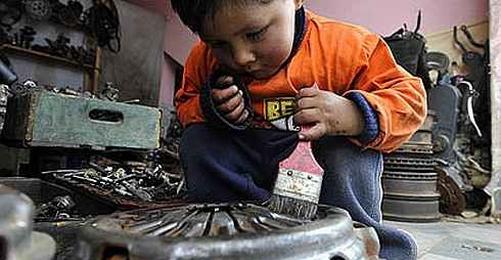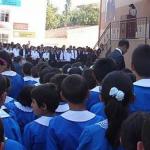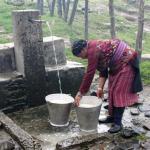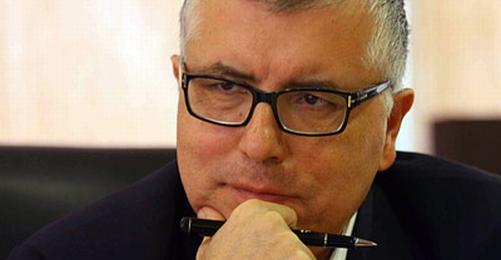"The system makes use of child labour. Especially uncontrolled small businesses have many children working for them. Child labour has to be stopped completely".
Gürhan Fişek, board member of the Foundation for the Working Children Science and Action Centre of the Fişek Institute, talked to bianet prior to the World Day against Child Labour on 12 June.
"Globalization is a significant factor for the persistence of this problem. The system makes use of child labour. On the other hand, countries struggle with problems such as poverty and population. The number of child workers would decrease if families had a sufficient monthly income. Costs for families with children are high, thus families turn to cost-effective solutions and make their children work".
Primary education should increase to 12 years
Fişek explains short-term and long-term measures to stop child labour in Turkey entirely:
"The eight-year primary education was an important step to reduce child labour. We have to give importance to this solution. We request to increase primary education to 12 years in order to entirely prevent child employment".
Mothers should work instead of children
"Child labour under the worst conditions must be stopped completely. There is no option of improvement in this field.
Fişek continues, "Social policies are crucial for a long-term solution. The social and economic level of families should be improved, mothers and fathers should be taken into employment. Mothers at home should definitely work so that the family does not make the children work as a solution. Women employment is an important factor in the struggle against child labour".
Fişek quoted Prime Minister Recep Tayyip Erdoğan who declared that "children are working for 100 Turkish Lira" (€ 50). She emphasized that the struggle against child labour should be part of the state policies:
"The Prime Minister forgets what he should do himself and blames his ministers instead. Where is the state if children are being employed? Where is the Ministry of Labour? Policies must be created on this issue; regulations for the prevention of child employment should be enforced. We have the right to resent the employers but the Prime Minister does not. It is his duty to prevent this situation".
Majority of Turkish child workers in agriculture
According to the 2006 Child Work Force Enquiry carried out by the Turkish Statistical Institute (TÜİK), a total of 958 children aged between six and 17 years are working; 632,000 of these children are boys, 326,000 are girls.
392,000 children work in the field of agriculture, i.e. 40.9 percent of all child workers. 566,000 children, the remaining 59.1 percent, are made working in other sectors.
As far as the children's income is concerned, only little more than half of all child workers receive a salary (53 percent). 2.7 percent work on the expense of the employer, 43.8 percent are made working within the family without payment.
Turkey is among the countries of the United Nations that signed the "Convention concerning the Prohibition and Immediate Action for the Elimination of the Worst Forms of Child Labour" (No. 182) approved by the International Labour Organization (ILO) in 2006. (SP/TK/VK)



















